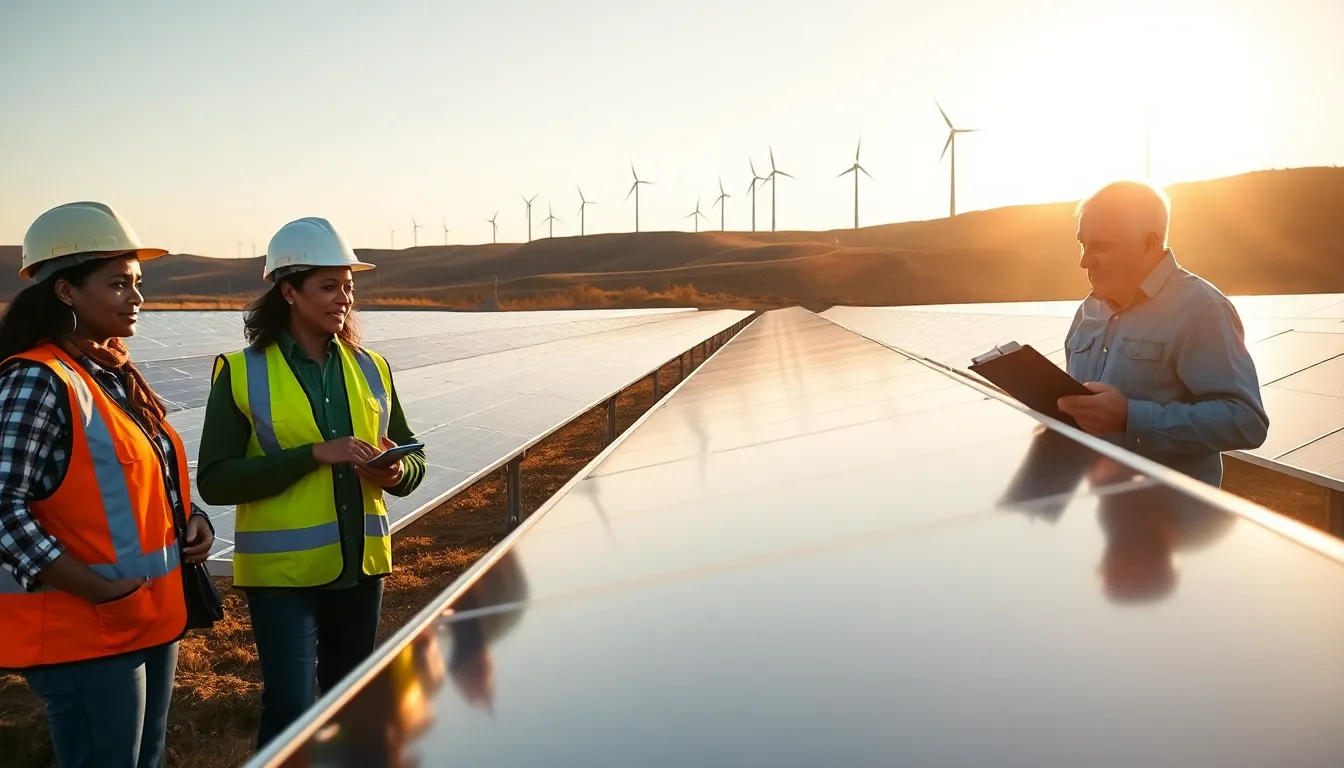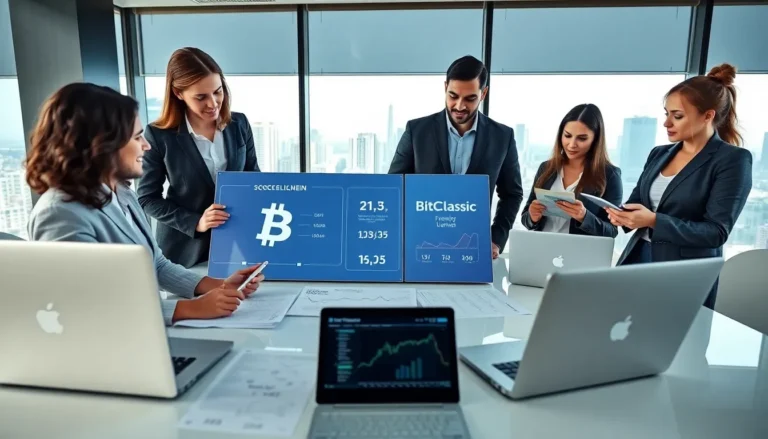Table of Contents
ToggleIn a rapidly evolving global landscape, the energy sector stands at the forefront of innovation and change. As nations strive for sustainability while balancing economic growth, various trends are emerging that shape the future of energy consumption and technology. This article delves into the latest developments in energy innovation, the economic impacts of energy policies, sustainable practices, and the geopolitical dynamics that affect energy supply. Also, it highlights technological advancements,, and anticipates future trends in energy consumption.
Current Events in Energy Innovation

Energy innovation remains pivotal in addressing global challenges such as climate change and resource scarcity. Recent breakthroughs in renewable energy technologies have led to significant enhancements in efficiency and cost reduction.
Growth in Renewable Energy Sources
Countries worldwide are investing heavily in solar, wind, and hydroelectric energy. For instance, the International Renewable Energy Agency (IRENA) reported that in 2023, the global capacity for solar energy exceeded one terawatt (TW) for the first time. This milestone not only demonstrates the feasibility of renewable resources but also marks a shift in how countries approach energy generation and consumption.
Energy Storage Solutions
An important aspect of energy innovation is the development of energy storage technologies. Battery advancements, particularly in lithium-ion and emerging solid-state batteries, are transforming the grid dynamics. These solutions enhance the reliability and efficiency of renewable energy systems by enabling better energy management during fluctuations in supply and demand.
Global Economic Impact of Energy Policies
The economic repercussions of energy policies can be profound, affecting everything from job creation to inflation rates. Policymakers worldwide are recognizing that transitioning to cleaner energy sources can yield substantial economic benefits.
Job Creation in Green Industries
The shift towards renewable energy is generating jobs across various sectors. The U.S. Department of Energy reported that the clean energy sector employed over 3 million workers in 2022, a number expected to grow rapidly.
This employment boom is not limited to the United States: global trends indicate a rising demand for skilled labor in renewable technology installation, maintenance, and innovation.
Investment Shifts
Also, investment trends are following suit. Investors are increasingly funding sustainable projects as they realize the long-term viability of clean energy. According to BloombergNEF, investments in renewable energy reached a record $1 trillion in 2023, indicating a clear pivot from fossil fuel dependency.
Sustainable Practices and Their Influence
Sustainability is no longer merely a buzzword: it’s a necessary approach across industries, especially in energy.
Corporate Responsibility and Energy Efficiency
Companies that adopt sustainable practices are finding competitive advantages. Many large corporations, such as Google and Microsoft, have committed to operating carbon-neutral data centers and transitioning to 100% renewable energy. This not only reduces their carbon footprints but also appeals to increasingly eco-conscious consumers.
Consumer Behavior
Besides, consumer preferences are shifting. A significant portion of the public now favors brands with sustainable practices, pushing more companies to consider their environmental impact seriously. Green certifications have become marketing tools, improving brand loyalty while simultaneously aiding the global sustainability movement.
Technological Advancements in Energy Generation
Recent technological advancements are reshaping how energy is generated and consumed.
Smart Grids and IoT
The adoption of smart grid technology is revolutionizing energy distribution. These systems leverage Internet of Things (IoT) connectivity to optimize energy use, predict demand, and maximize the efficiency of energy resources.
Smart meters and automated systems allow consumers to monitor their energy consumption, leading to more informed choices and reductions in usage.
Enhancements in Nuclear Energy
Also, nuclear energy is experiencing a renaissance. Innovations such as small modular reactors (SMRs) promise safer, more efficient nuclear power generation, addressing past safety concerns while providing an emission-free energy source. Countries like Canada and the United States are investing in these technologies, recognizing the crucial role nuclear power can play in achieving carbon-neutral goals.
Geopolitical Dynamics Affecting Energy Supply
The interconnectedness of global energy markets is influenced by geopolitical factors that can threaten or stabilize energy supply chains.
OPEC and Oil Prices
For instance, decisions made by OPEC (Organization of the Petroleum Exporting Countries) can drastically alter oil prices. Recent cuts in production by OPEC countries have led to fluctuations in global oil prices, impacting both economies dependent on oil exports and consumers worldwide.
Conflict and Energy Security
Also, geopolitical tensions can disrupt energy supplies. The ongoing conflicts in regions rich in oil and gas resources present a risk to energy security, prompting countries to diversify their energy sources to mitigate reliance on volatile regions. This not only reshapes global energy strategies but also propels investment in renewable resources.
Future Trends in Energy Consumption
Looking ahead, the energy landscape is poised for significant transformations driven by technology, consumer behavior, and policy changes.
Increased Electrification
One key trend is the increased electrification of sectors traditionally reliant on fossil fuels, such as transportation and heating. The push for electric vehicles (EVs) is expected to continue, with projections estimating that EV sales will constitute over 50% of all new car sales by 2030.
Decentralized Energy Systems
Also, the rise of decentralized energy generation systems, such as residential solar panels and community wind farms, is likely to empower consumers. Prosumers, those who both produce and consume energy, will become increasingly common, challenging traditional utility models.
Conclusion
Summarizing, the energy landscape is undergoing notable changes characterized by innovations and shifting global dynamics. As the world confronts challenges related to climate change and economic stability, energy policies and practices are evolving to foster a more sustainable future. From technological advancements to geopolitical shifts, the developments in energy innovation and consumption will significantly impact the global economy and our environment in the years to come. Staying informed and adaptive to these changes is crucial for individuals, corporations, and governments alike.





